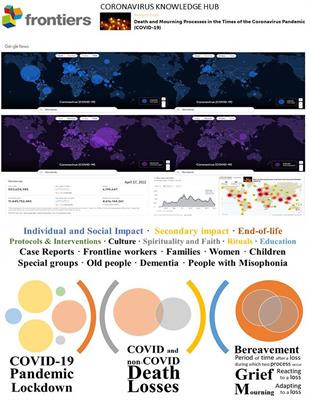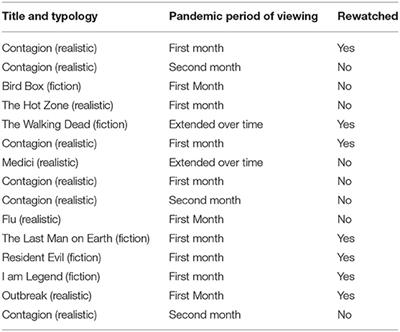EDITORIAL
Published on 26 May 2022
Editorial: Death and Mourning Processes in the Times of the Coronavirus Pandemic (COVID-19)

doi 10.3389/fpsyt.2022.922994
- 2,122 views
- 7 citations
79k
Total Downloads
540k
Total Views and Downloads
Select the journal/section where you want your idea to be submitted:
EDITORIAL
Published on 26 May 2022

CONCEPTUAL ANALYSIS
Published on 07 Feb 2022

PERSPECTIVE
Published on 29 Sep 2021

ORIGINAL RESEARCH
Published on 08 Sep 2021

ORIGINAL RESEARCH
Published on 03 Sep 2021

ORIGINAL RESEARCH
Published on 02 Aug 2021
ORIGINAL RESEARCH
Published on 09 Jul 2021

ORIGINAL RESEARCH
Published on 30 Jun 2021

ORIGINAL RESEARCH
Published on 16 Jun 2021

CORRECTION
Published on 11 Jun 2021
PERSPECTIVE
Published on 08 Jun 2021
PERSPECTIVE
Published on 04 Jun 2021

Frontiers in Global Women's Health
Frontiers in Psychology
Frontiers in Public Health
Frontiers in Sociology
Public Mental HealthOffline